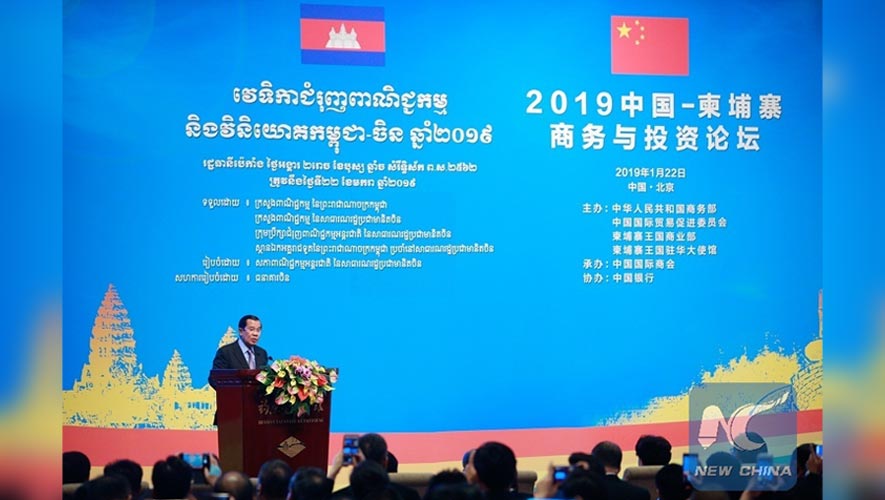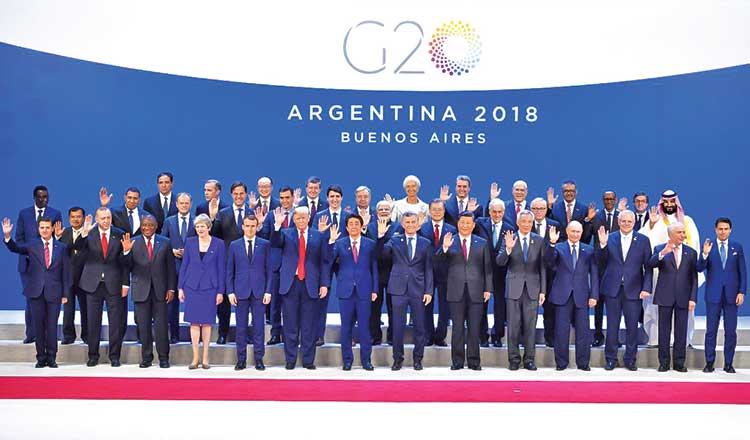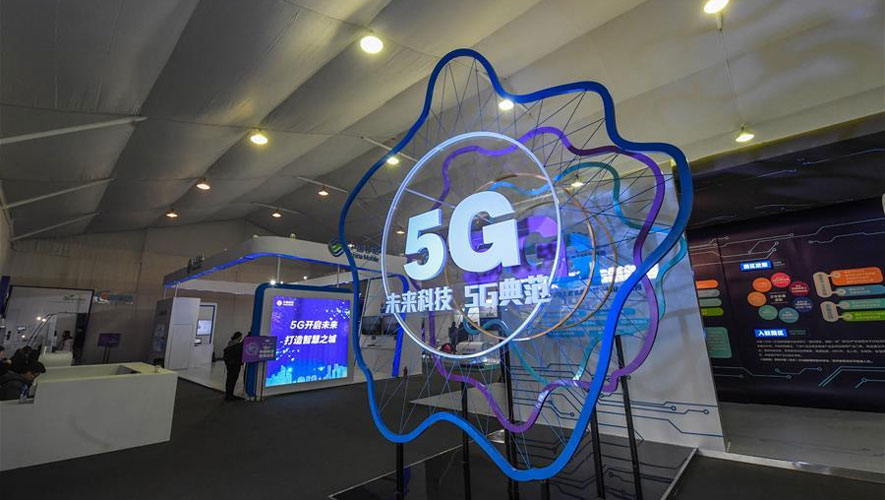An estimated 80 percent of power produced in Cambodia comes from projects undertaken by Chinese companies, either state-owned or government-linked. In between that, is the hard work of industrious Cambodian workers.
For the latest Cambodian Business news, visit Khmer Times Business
China has built 31 highways and eight bridges for Cambodia with a total highway length of 3,000 kilometres. “What has the US done in this area?”, the Chinese Embassy said in reaction to the accusation by US against China on trade.
This is part of the continuous exchange of barbs between China and the US over Cambodia. Cambodia is at times seen as an apologist to China while China remains largely on the sidelines which Cambodia was bashed.
So, the question here is, if China is not in the picture, who would come forward to build power projects, roads, hospitals, irrigation canals, transmission lines and infrastructure? This is a question which requires an answer because Cambodia is still at development phase while those who admonish Cambodia’s seemingly cozy relationship with China have already reached their optimum in terms of infrastructure development.
China, unfairly perceived
Pew Research Centre said in one of its reports that China’s growing economic might is generally seen as a good thing in most of the countries surveyed. However, in some nations, China’s increasing prosperity is considered a threat, especially to those who are counting on the west to balance against China’s rising might.
The report further added that across 43 nations, a median of 49 percent possessed a favourable opinion of China while 32 percent felt otherwise. In any case, the overall image in the US and Europe is mostly negative.
“Across the globe, young people tend to have a more positive attitude toward China than older respondents. In 23 nations, people aged 18 to 29 give China high ratings compared to those aged 50 and older. In UK, Mexico, the US and France, the gap between older and younger respondents is 20 percentage points,” the report stated.
Meanwhile, British Broadcasting Corp reported that China’s rapid economic expansion in recent years has been matched by its increasingly voracious appetite for energy and natural resources, and that the nation has sometimes been unfairly portrayed as the world’s biggest environmental villain.
Many warn Cambodia of falling into a debt trap, including Cambodia-born economists living abroad. But can anyone say which project that is being undertaken by the government has a sovereign guarantee that could leave the government in debt if the project failed?
These are “Build-Operate-Transfer” projects with funding provided by the Chinese and the only guarantees the operators can probably obtain is the power purchase agreement with Electricity Du Cambodge (EDC).
A few bad apples
Not everything about China in Cambodia is bad and on the same basis, not everything about China in Cambodia is good as there are some bad apples among the thousands of mainland Chinese nationals working or residing in the Kingdom.
In Sihanoukville, the Chinese “invasion” has drawn brickbats and accolades, depending on who is being quoted.
Cambodians, who experienced a windfall selling their land, hotels, buildings or other structures to Chinese nationals, are hardly the ones who are complaining. Yes, it cannot be disputed that the source of funds for the inflow of Chinese investments in the real estate sector remains a big question. A bigger concern is the grey-listing of Cambodia by money laundering watchdog Financial Action Task Force.
This is where law, order and enforcement need to be tightened to identify the source of money, its entry into the country and by what means. Is it via the banking system? All these need to be investigated and clarified. Otherwise, Cambodia will remain on the grey list or worse, return to the black list as a haven for money laundering.
As it stands, Chinese nationals are not doing themselves any favour in relation to their alleged aggressive and crude activities, attitude and behaviour, and by repeatedly being involved in scams and crimes such as VoIP (Voice-over Internet Protocol) and serious crimes like murder and armed robbery.
But is every Chinese from mainland China allegedly profiled this way because they are Chinese? At times, people accuse Chinese nationals as being allegedly loud, offensive and even repulsive. But does that mean they fall into the category of “people invading Cambodia”?
Trailing anti-Chinese sentiment
According to Wikipedia, anti-Chinese sentiment has existed since the mid-19th century, shortly after Chinese emigrants arrived on the shores of the US. This feeling surfaced in the 1860s, when the Chinese helped to build the First Transcontinental Railroad, later manifesting into the Chinese Exclusion Act of 1882 which challenged immigration and naturalisation formalities.
These sentiments can be traced back to American merchants, missionaries, and diplomats who sent home “relentlessly negative” reports of Chinese people they encountered in China. The attitude was transmitted to Americans who never left North America, triggering talk of the Yellow Peril, and continued through the Cold War during McCarthyism.
Modern anti-Chinese sentiment is the result of China’s rise as a major world power. Anti-Chinese sentiment or Sinophobia is a broad opposition or hostility to the people, policies, culture or politics of China.
Fast forward to 2019, with the rise of China, Sinophobia is rearing its head again. Ignorant politicians and individuals are fuelling these sentiments in Cambodia. This must be nipped in the bud before it becomes endemic and results in an anti-China uprising as seen in Vietnam several years ago.
We have already seen the effects of anti-Thai reaction fuelled by individuals. Surely we would not want to see a repeat of this in an anti-China riot!




